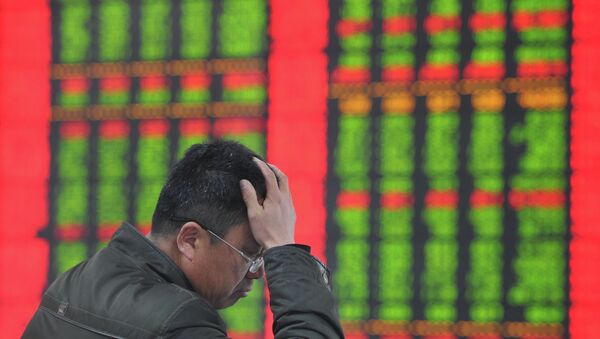Kristian Rouz — The Chinese government's efforts to curb the overheating property market by regulatory measures have only had a limited effect, as home prices resumed their ascent last month. Whilst this might be a sign of market stabilization, the central government has long been concerned by the sky-high asset values across several sectors of the economy, including real estate.
Meanwhile, high property values could trigger asset bubbles in an overleveraged economy, threatening a potential credit slump.
"There's an obvious shift toward defending against risks and cutting leverage after the Party Congress," Shen Jianguang of Hong Kong-based Mizuho Securities Asia Ltd. said. "We've come to a turning point in economic policies."
Home values rose in 50 Chinese cities in October compared to 44 the previous month, according to the National Bureau of Statistics (NBS). Values dropped in 14 cities and were flat in 6.
Average new home prices rose 0.3 percent in October. Monthly gains in China's home prices peaked at 2.1 percent in September 2016.
This as President Xi Jinping urged the properties to be "inhabited," stressing residential real estate development must not be intended for "speculation."
"More cities were seeing increases in property prices, but they are indeed growing very steadily," Xia Dan of the Shanghai-based Bank of Communications Co. said. "There's very limited room for home prices to move upward or downward."
This as home sales are actually falling, and credit is becoming less available due to the government's crackdown on shadow banking and the People's Bank of China (PBOC) measures of indirect monetary adjustment resulting in rising market interest rates.
READ MORE: Economic Ties to Become Focus of China's Neighborhood Diplomacy
China's housing has expanded for roughly two years, supporting the slowing broader economic growth — mainly due to the overwhelming demand from local bureaucrats and business owners, who lack free access to universal safe-haven assets to park their money at.
The authorities, for their part, are focusing on curbing corruption and shadow lending, in order to stave off the mounting risks to the economy from the ongoing debt accumulation. China's total debt-to-GDP has exceeded 300 percent, which includes debt of provincial governments and non-governmental entities — most of which is ultimately guaranteed by the central government in Beijing.
"China still intends to strike a balance between growth, debt and leveraging," Zhou Hao of the Singapore branch of Commerzbank AG said. "That said, we need to prepare for some downside bias for the trade and activity data in the coming months."
Meanwhile, the Chinese economy has moderated in the recent months. Albeit its growth is not quite as buoyant as it was a decade ago but is still8-percent per annum, so China's economic expansion looks sustainable.
Industrial output rose 6.2 percent in October compared to 6.6 the previous month, retail sales rose 10 percent (10.3 in September), fixed-asset investment rose 7.3 percent year-to-date over the same period last year.
The International Monetary Fund (IMF), however, warns about the possible downside to China's overheating property market.
A "sharp correction" in the Chinese residential real estate market would "weaken growth, undermine financial stability, reduce local government spending room, and spur capital outflows," the IMF said.
Policymakers, for their part, are not willing to tighten housing market regulations beyond the point that it would start hurting broader economic growth. The PBOC is facing a tough mission of striking a balance of supporting economic expansion and staving-off the mounting demand-side risks.


